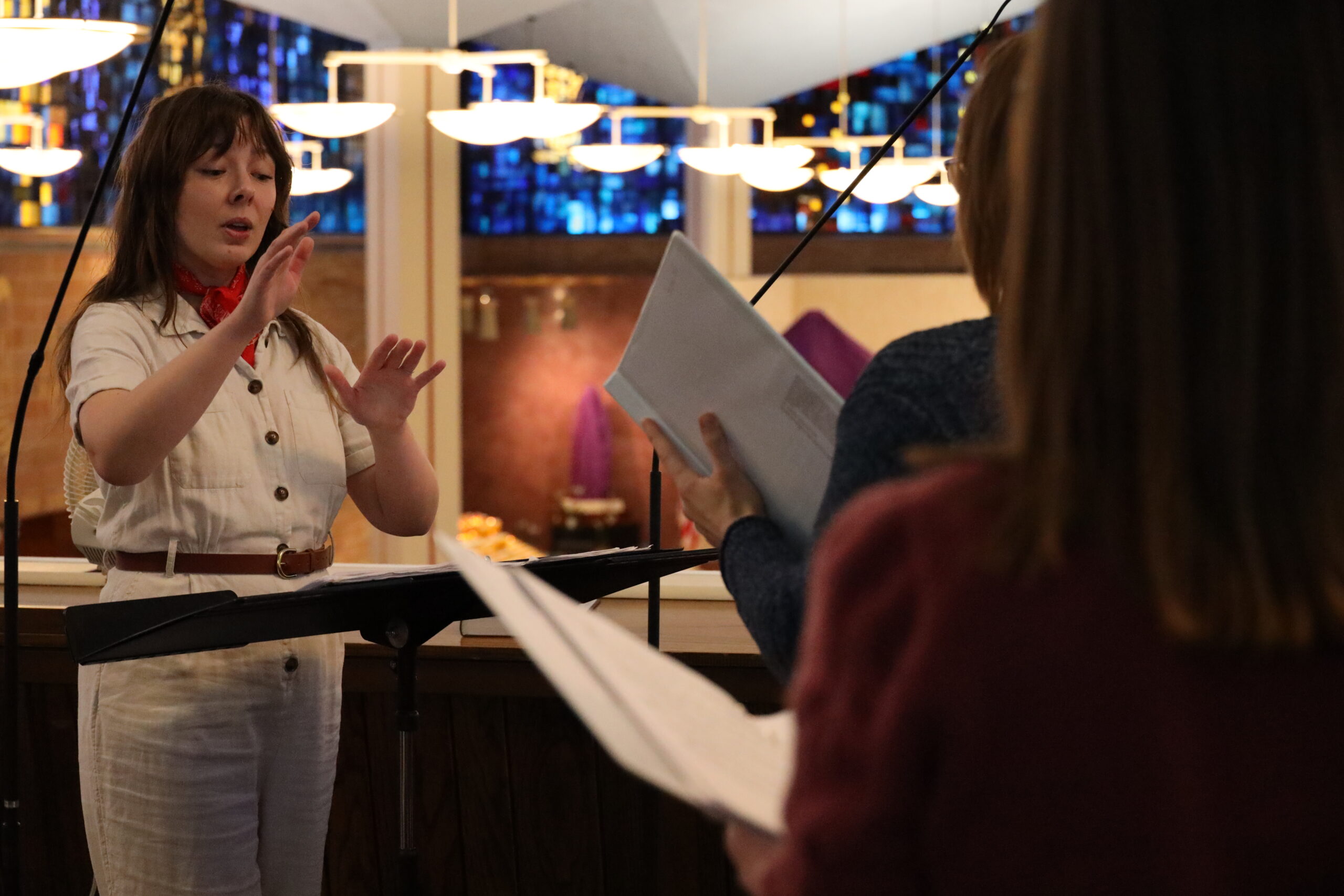
Kali Matz leads the choir at Christ the King Church in Omaha. SUSAN SZALEWSKI
Encountering Jesus
At Christ the King and everywhere, liturgical music comes alive with Easter
March 30, 2024
Outside Christ the King Church in Omaha, the seasons have begun to change from the chill of winter to the warmth and new life of spring as trees bud and the grass greens.
Inside the church, during the stillness and longing of Holy Saturday, a similar change and bursting forth of new life is about to happen, especially with the music of the Catholic Mass.
The self-reflection of Lent brought somber and introspective music into the sanctuary. Conversely, congregations in those same pews will celebrate Jesus Christ’s Resurrection on Easter Sunday with joyful music that had been missing for the prior 40 days.
This shift is evident in parish music ministries across the archdiocese – including at Christ the King.
“We have all these beautiful, sensory ways of accessing God, whether incense or music or stained glass,” said Kali Matz, who was hired last year as the parish’s music director. “Hopefully, we’re not distracted by that. We’re trying to help.”
As she recalls her predecessor saying of Christ the King’s music ministry: “We’re the handmaids of the people of God on their journey of faith.”
And nowhere does the musical road of that journey take a sharper turn than Holy Week.
Much of the music during the Lenten season is done a cappella, meaning it’s sung by the choir without musical accompaniment. And Christ the King, like many other parishes at this time of year, reverts to traditional Gregorian chants in Latin – a style that predates the invention of most modern instruments – during the Liturgy of the Eucharist in Lent.
“It adds a little more to the mystery of the Mass, the sacredness and reverence,” said the church’s pastor, Father John Pietramale.
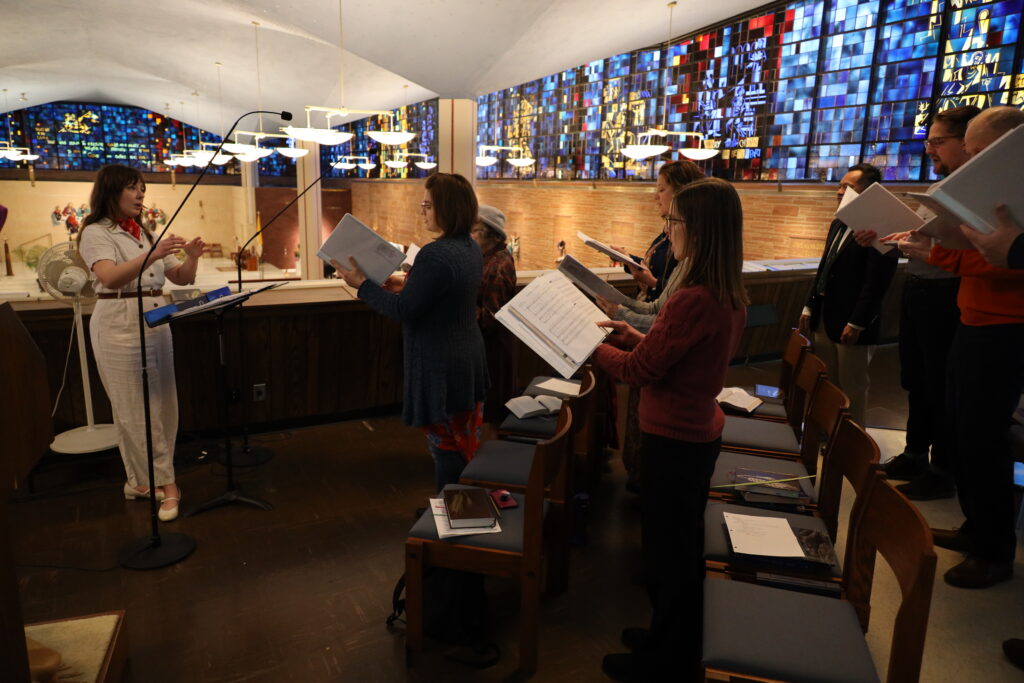
But, beginning with the Easter Vigil service on Saturday night, the tone of the music completes a 180-degree turn.
During that Mass, the timbre builds from anticipation to celebration. And come Easter Sunday, more voices and instruments mark the unfettered jubilance of the Resurrection.
“As they say in the Holy Sacrifice of the Mass, the angels and saints in Heaven unite with Earth,” said Jim Harvey, a member of Christ the King’s music ministry for 30 years. “When you have the Easter celebration, you have a taste, a little glimpse, of Heaven on Earth with more festive and flamboyant music.”
At Christ the King, that musical shift from Lent to Easter is further amplified by the re-emergence of the organ, which, Father Pietramale said, enhances “the awesomeness and holiness of this place.”
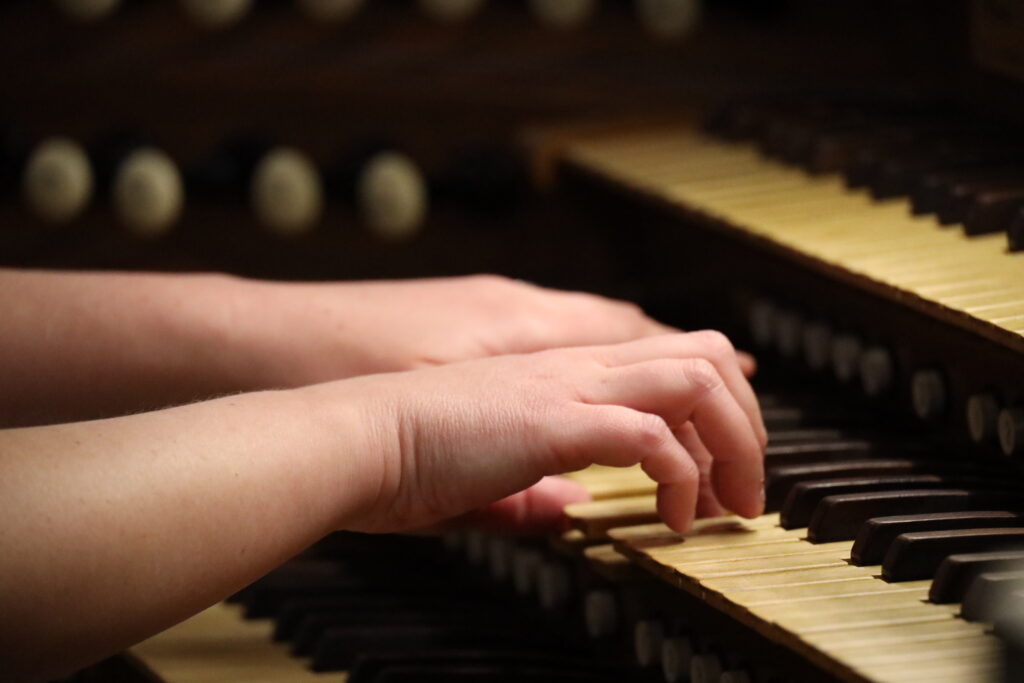
Jenny Holtz, a vocalist with the music ministry at Christ the King for 54 of its 71 years, said the rich history and sound of the organ are an integral part of the musical heritage of both the parish and the Catholic Church at large.
“The organ was originally the great instrument of the Church,” she said. “It’s a greater variety of sound than piano. When you’re thinking about Easter or Christmas, the great celebrations of the Church, it’s a greater richness of sound.”
Despite their tradition in the Church, organs are increasingly rare for accompaniment. Most churches today instead rely on pianos, which are smaller and more contemporary, but are more limited in the variety of sound they can produce.
The difference in sound, Matz said, becomes more apparent when an organ joins with the choir.
“Organ is really unique because it sings like a human voice,” said Matz, an organist who trained at St. Cecilia Cathedral in Omaha. “It uses air, not a hammer hitting a string. It has a broad level of expression. When we play the liturgy, we’re trying to play for God’s eminence right here with us and God’s transcendence.”
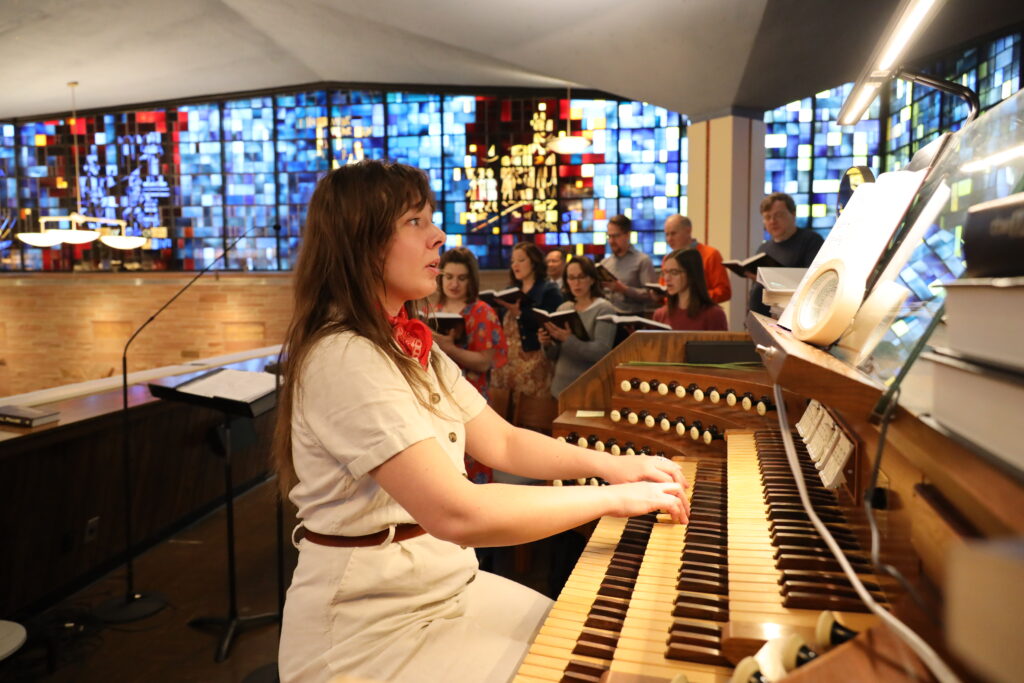
The responsibility of translating that presence and power in the Mass is a vital duty for musicians, irrespective of the liturgical season or emotions evoked by the hymns.
Similar to how God revealed Himself to Elijah in the quietness of a whisper – rather than in the roar of the fire or earthquake – the music ministry at all parishes, including Christ the King, are there to augment worshipers’ ability to experience God’s presence in the Mass.
“Without that whisper, without that voice inside,” Matz said, “the biggest organ, the loudest choir doesn’t mean anything. It’s just window dressing.”
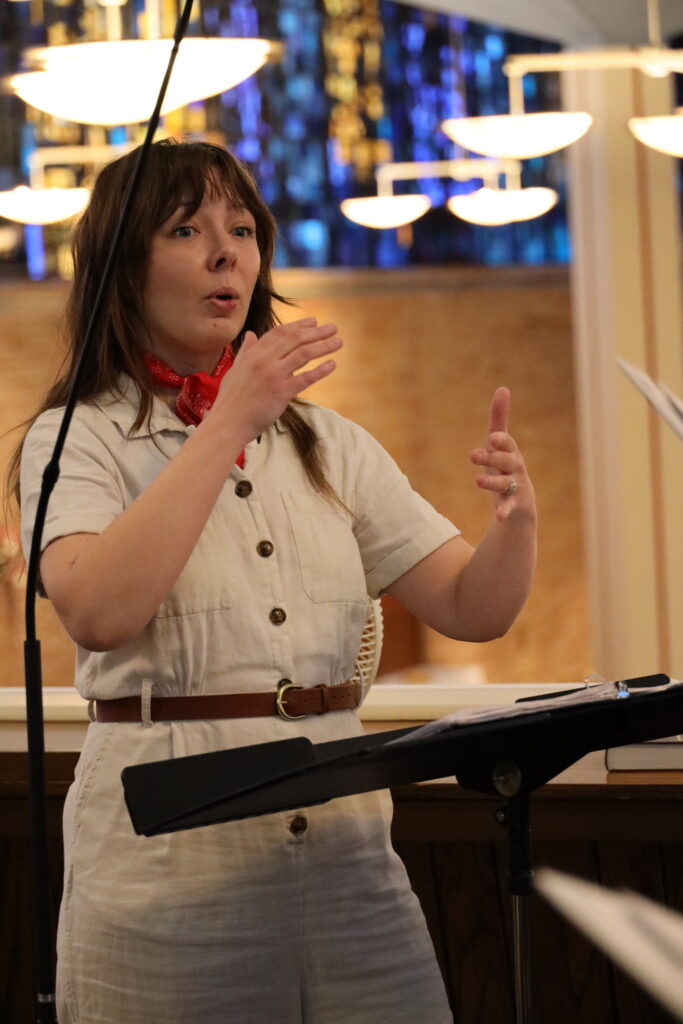
READ MORE FROM THE CATHOLIC VOICE: